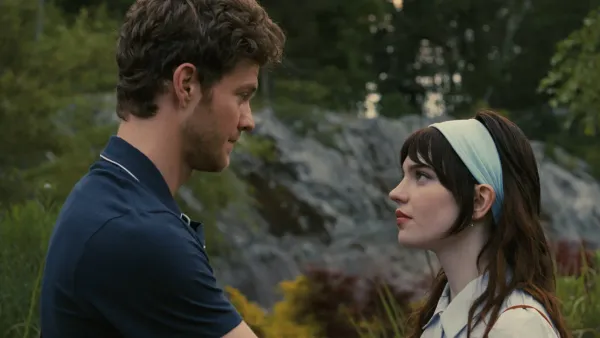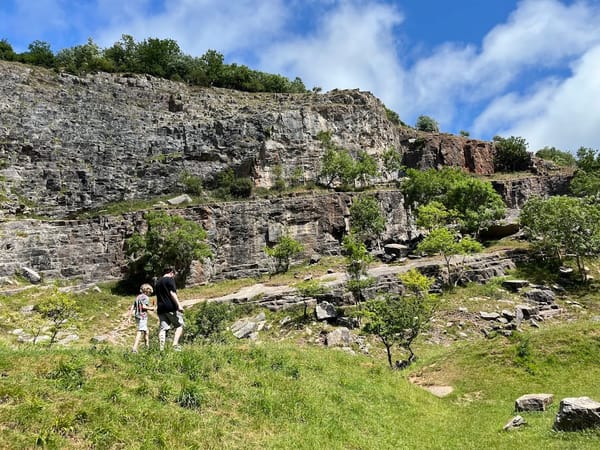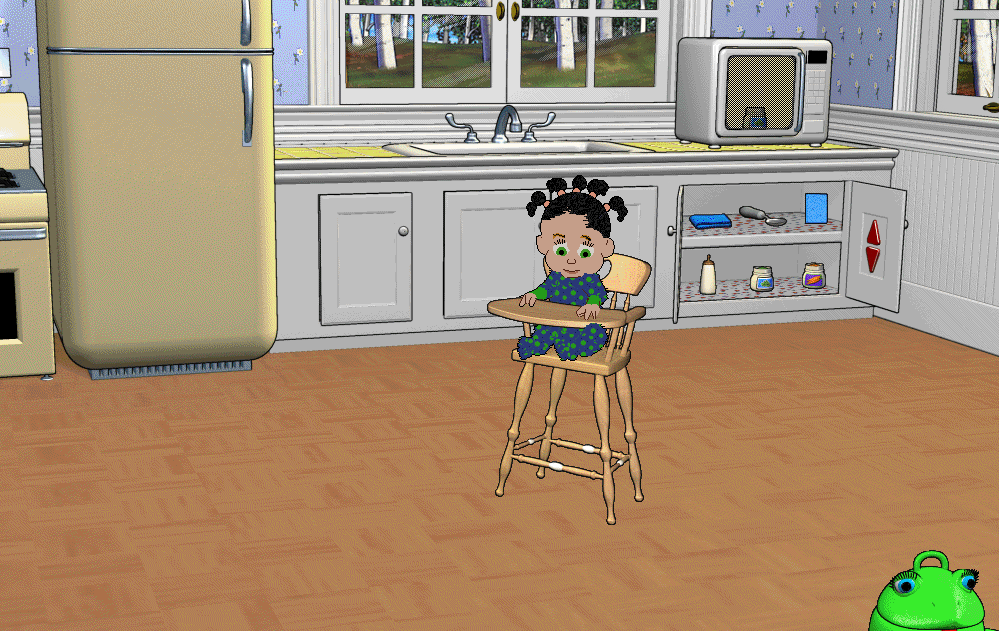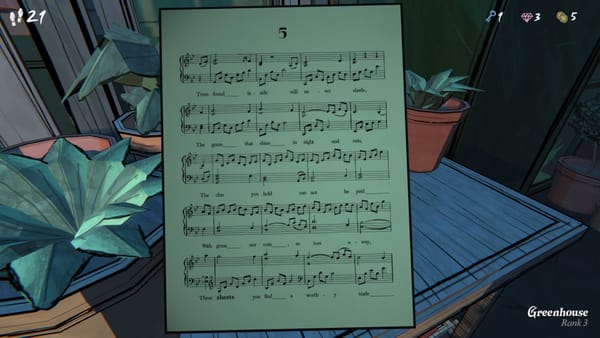Too much, and not enough
on power and worth
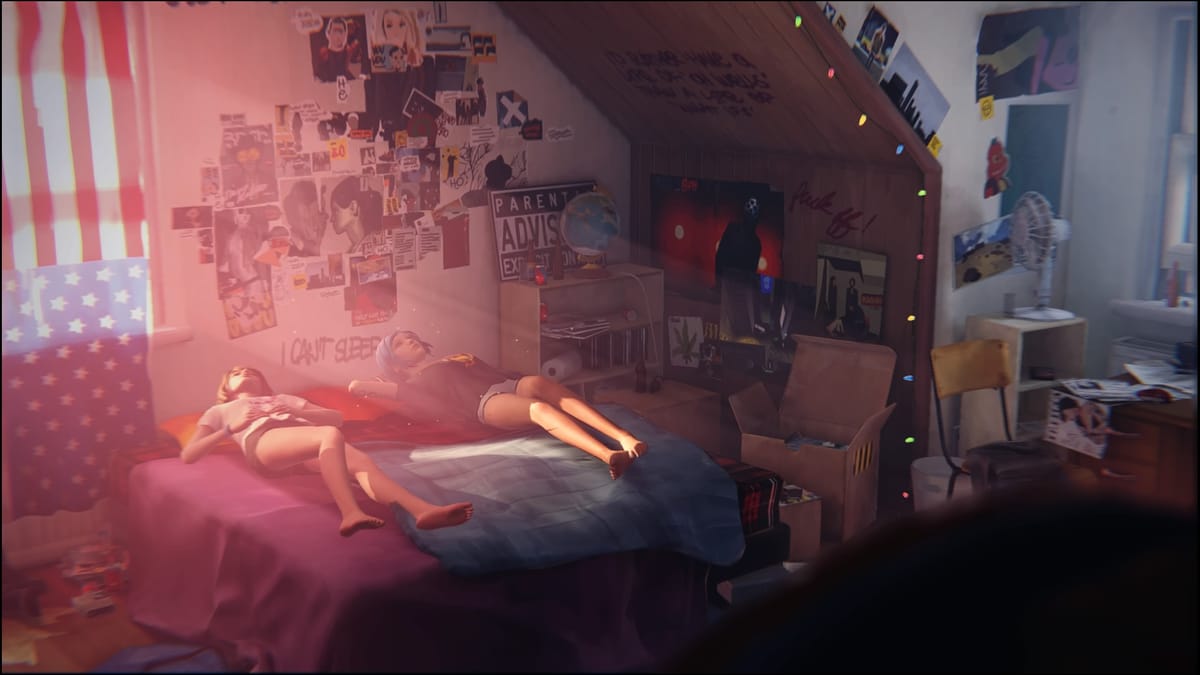
I played Life is Strange around two years ago. It's a lovely little nostalgia bomb. Mostly because of the music. It makes me think of pottering around in our cold flat near the sea, wearing several jumpers, and listening to my iPod. It's also - because I played the original PS4 version, rather than the remaster - quite janky. Which can be fun, if you're in the right mood.
I think Life is Strange is one of those games that might resonate with you if you're nearer to the age of the protagonists, although I'm basing that on my feelings rather than anything concrete, so you can tell me I'm talking out of my arse and I won't be offended. After steadily working through most of Don't Nod's adventure games, I figured out which character I identified with the most. I thought it would be Max: quiet, shy, arty, and a bit pretentious. That's me! I'm all of those things!
But in the end, it was Chloe.

Chloe is a tragic figure in Life is Strange. Doomed from the get-go, she's another girl let down by the world, lost to drugs, depression, and bad choices. As the story develops, we see more of her: she's funny, outgoing, kind of silly, and young for her age, despite all her swagger. She has a lot of growing up to do.
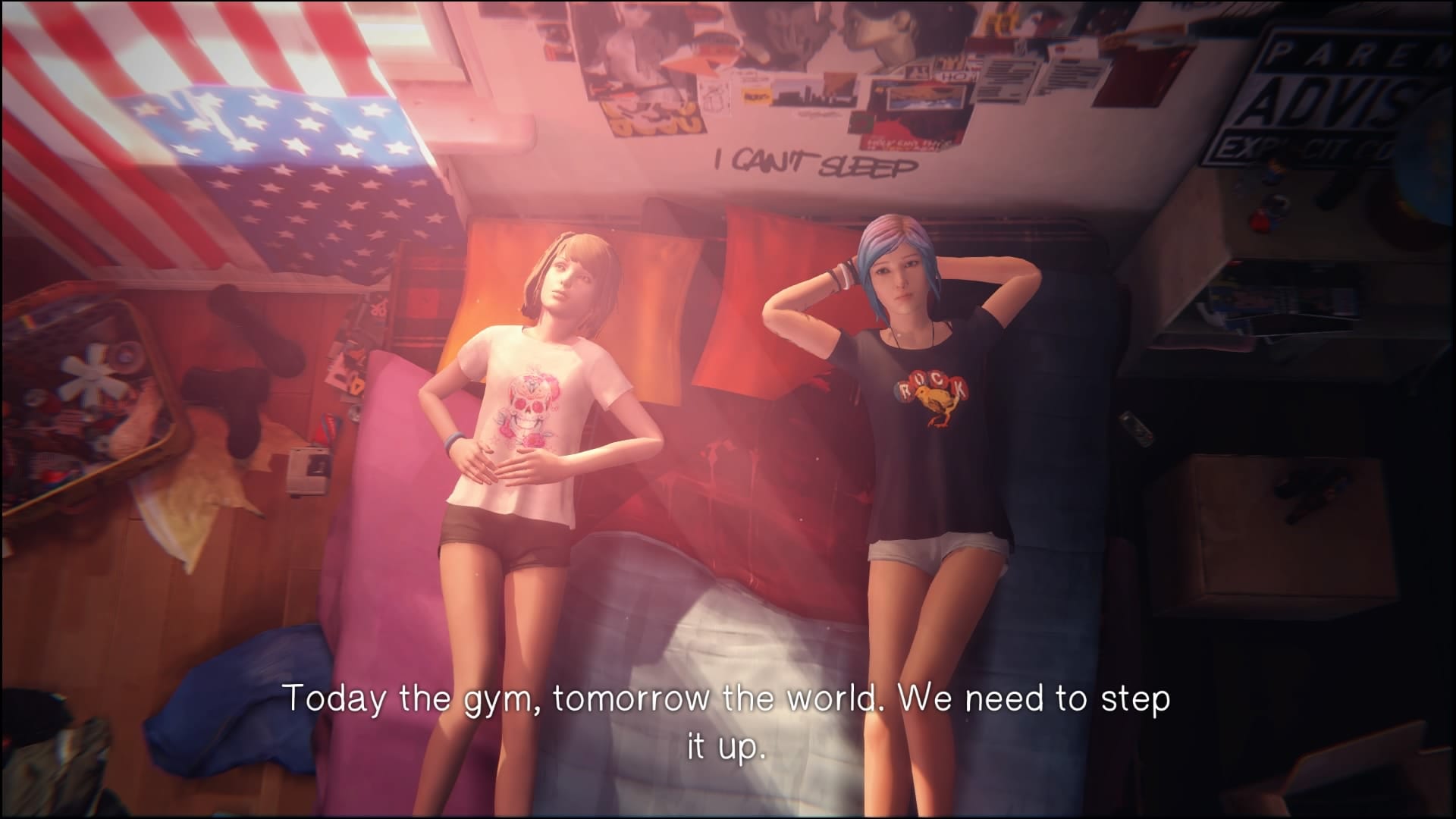
The reason why I feel so heavily connected with Chloe is not because our lives are remotely similar. Even during my 'bad phase', I never went as far as Chloe. I would never attempt to force my way into a bar by entering a snark competition with the bouncer, for example. (Far easier to head to the dodgy bars, where the bouncers allow fourteen-year-old girls to be accosted by strange men on the dancefloor without the slightest feeling of responsibility for it.) Also, I would rather die than unironically use the word 'hella'. But Chloe stands out to me because she's so tragically, deeply unconvinced by her own worth. She feels utterly powerless.

Self-worth and power are deeply linked. I find it hard to untangle the two. When I was in the thick of my deconstruction phase, I had a lot of late-night conversations with friends about this. It's hard to wrap your head around the Brian Houstons, Mark Driscolls, and Mike Pilavachis of the world; how could these people talk about love, grace, and forgiveness while displaying the exact opposite behaviour? There's so much to be said about this, but I could pull examples from all areas of life to prove that power corrupts. Too much power in the wrong hands is a terrible thing. It rots the heart, I think. It hardens people.
But the opposite is also true. When you feel powerless, you get stuck, and I see that in Chloe. So much of her life has robbed her of any kind of agency over her own life: the loss of her father, the consequent moving in of her stepfather, the disappearance of Rachel, and the abandonment of Max. She is propelled down the river of self-destruction just by the sheer force of the circumstances stacked against her. Easy to see how she gets swept away in the tide.
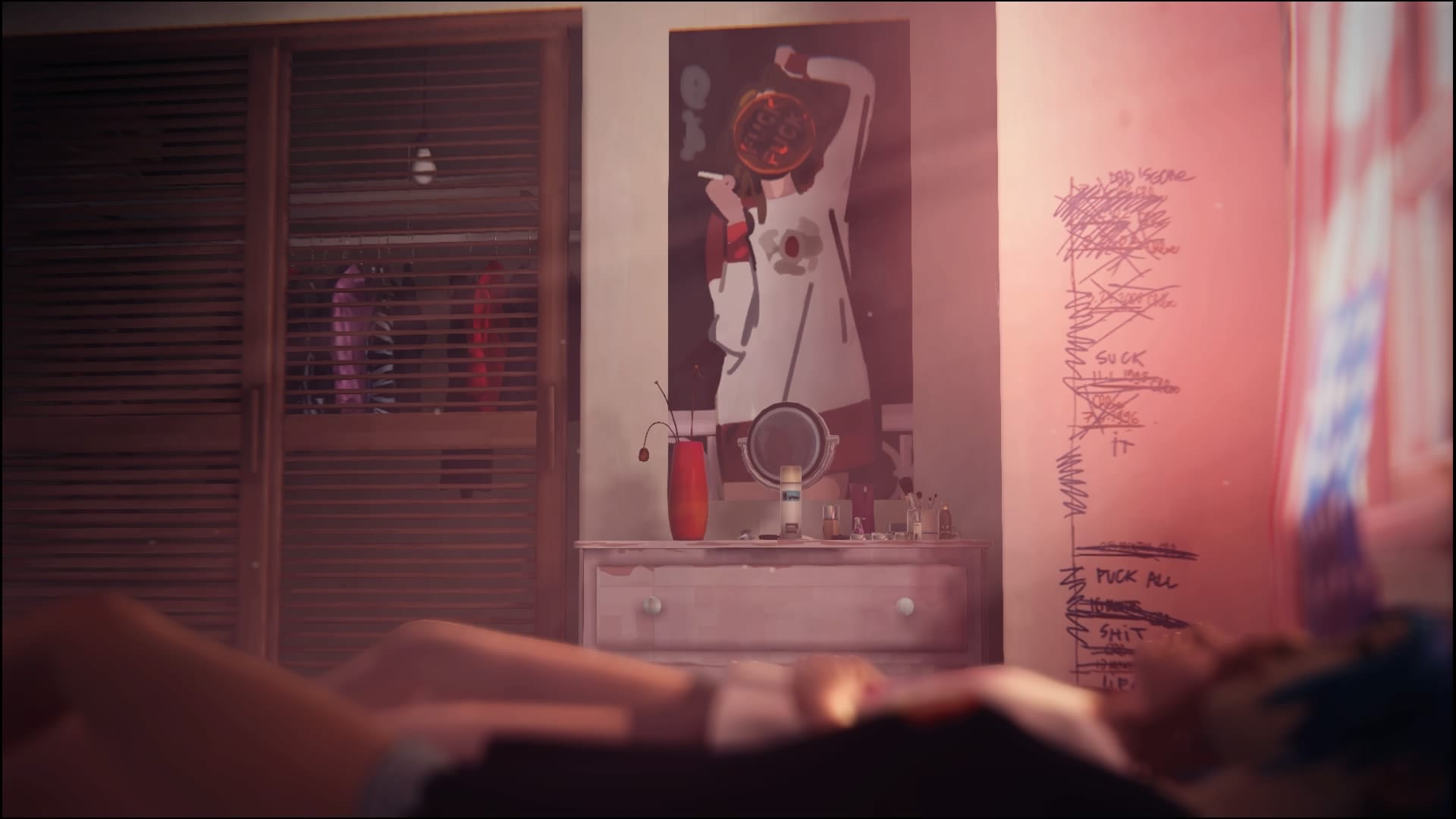
So many times in my life I've felt utterly powerless, and I wish I had someone to pull me aside and give me a little shake. To tell me, you know you can change this. You know you have the ability to make actual decisions and stick to them. You know you have power. Right?
That's what I want to do for Chloe. In reality, I know it would be fruitless. If somehow I managed to do what I longed for as a child and lean against the television until I got absorbed into the game, it would be too late for me to do anything. Chloe's story is sad because people can't get through to her. By the time we see her at the start of the game being shot in the bathroom, it's the beginning for us, but for Chloe, it's the end of a long and complicated journey in which the odds were never in her favour. The world can be cruel, and a lot of it is just down to luck, or the lack of it.

It would be easier for me to sit here and say that I've felt powerless over the years because of things that have happened to me: abuse, perhaps, and the strange, unintended impact of religion. Maybe those things play a part, but it's almost entirely down to me. I spent most of my twenties feeling like I couldn't make actual decisions without agonising over it first, and then eventually thinking I probably couldn't do it so it was easier to not try at all. And God, sometimes I wish I could go back and tell myself to snap out of it. Such a stupidly simple idea, that I could decide to just do stuff. All those longings in my heart. I could have just followed them. I could have ignored the fear and the guilt and just gone for it.
Ah well. It's done now. My twenties were full of joy and fun and love, despite any regrets I might have. And the truth is, that faith, while holding me back from seeking power because that in itself felt a bit sinful, also empowered me to make some fairly brave decisions sometimes. When I first started going to church, I got into the bath (top-tier thinking spot along with the shower), closed my eyes, and prayed:
I don't understand what my purpose is. Please tell me.
A vision popped into my head: rows of girls sitting attentively in some kind of meeting. Girls like the person I had been; fragile, already kind of brow-beaten, and maybe on the cusp of disaster. In the vision, I stood in front of them and I told them their worth. I told them again and again. You're worth something. Don't forget that you're worth something.
I did try in real life. I linked up with another girl in church who became one of my best friends. We ran a program for teen girls in our area. We created a safe space for them. We spoke worth over them. We told them, the best way we could. And through this, I realised that this particular form is not my calling. I'm not one to stand up and speak in front of a crowd of teens. It's just not my strength (unlike my friend, who is incredible at this kind of thing and continues to amaze me more as the years go on).
I can't help but think this is still my 'calling' in some capacity. While I'm not sure that I, a random woman, could be given a vision by God just because I asked a question when there are millions of people calling out for help and being ignored, I don't think the technicalities are the point. This is what I care about, this is what I've always cared about. And I've spent a morning this week planning and thinking. It's made me excited for my forties, if you can believe that.
(To be clear I do want boys to hear it too, I just don't think I'm the right person to deliver it.)
I don't know for sure what would have happened if someone had grabbed me and told me that power didn't come from relationships or looks or status, but that I had inherent worth already within me, that I already had everything I needed to build a good life and to move through the world with strength and conviction. But it could have made the world of difference. It could have changed everything.

I've noticed that my son - only seven, so not quite at the spiral-into-rebellion stage - has been quite frustrated recently. The dynamic is that he is the baby of the family, the little one, and sometimes we all forget that he's not actually a toddler anymore. He's a person in his own right, albeit a very small and boisterous one. I went to bed last night thinking about the kids, realising that I need a shift of mindset about him. I need to give him a bit more power and let him make more decisions. I wonder if Chloe would have made different choices, had she been given more control.
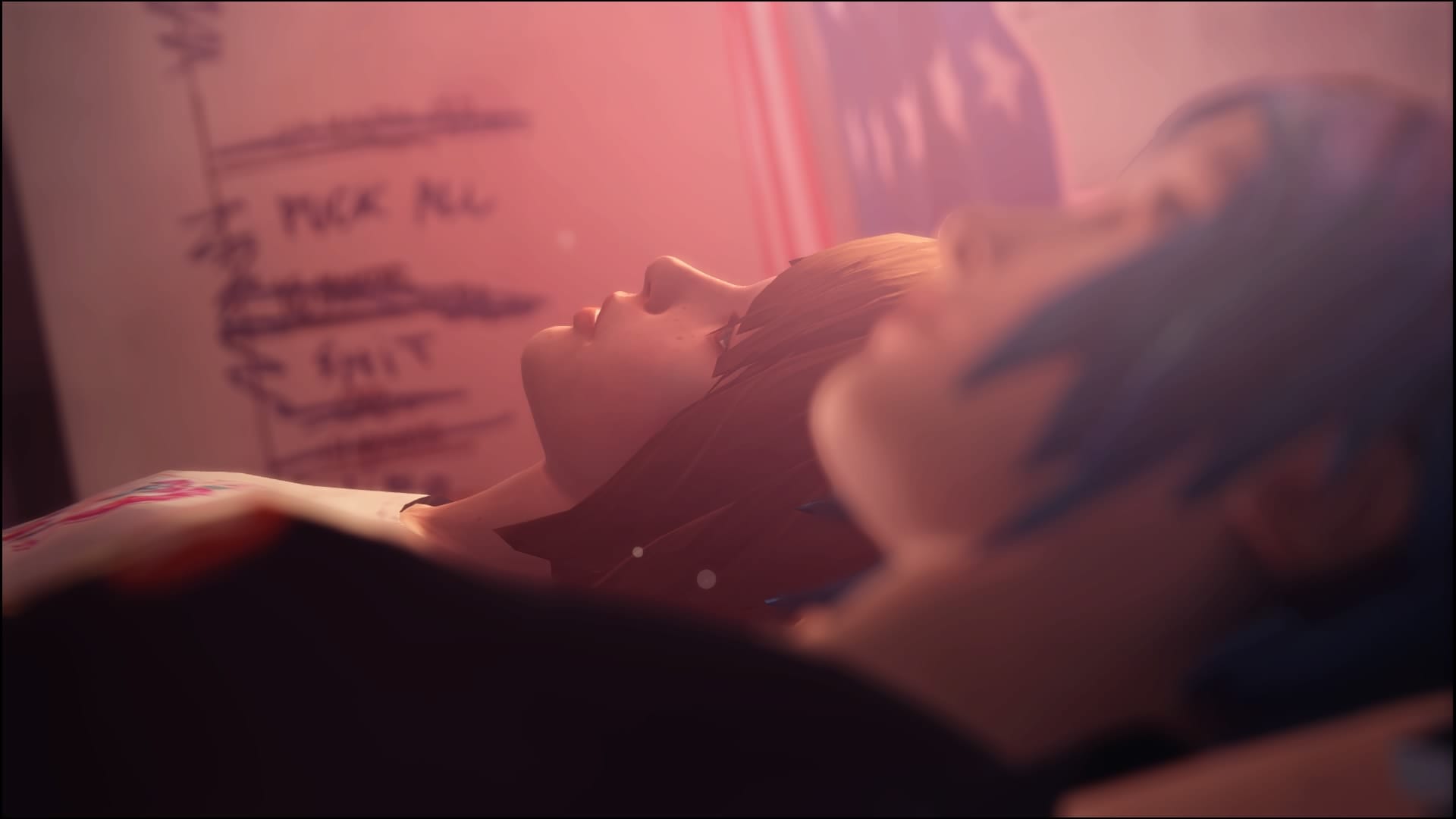
I think I'll probably always have a soft spot for Don't Nod's output because of the pure talent of the writers and voice actors. (These people must not be replaced by AI under any circumstances.)
I was thinking about this when I read a piece in Issue 01 of the gaming journal A Profound Waste of Time, The Boy in the Well, written by Ashly Burch, the original VA for Chloe. Ashly writes about her deep connection with the character; how becoming Chloe, for a short time, had an impact on the rest of her life. This part really stuck with me: 'That bold, defiant teen that felt so divorced from my nature at the beginning became my vessel.' There's just something about Chloe. Something about her pain that is universally relatable whose lives haven't always been kind.
On a related note, I wrote in my Side Quest Extra post this week that sometimes I want to give up on gaming as a hobby; it's too harsh, too combative, and too immature. You know at the beginning of Life is Strange, when you're learning the time-travel mechanic and you have to do this convoluted little puzzle involving spilling paint all over a mean girl to get her to move out of the way? It's one of those moments in a video game that briefly makes you think: what is this? What am I doing here?
That's how the toxic, never-ending discourse makes me feel, sometimes. What is this? What am I doing here? I could give up on all this and do something else. I could acutally learn to play guitar or read more books or just go outside or something.
But then I think about how sometimes a game lodges itself into your psyche so deeply that you remember them as vividly as something that happened in your own life, as though these characters are people you know, rather than stories borne from someone else's imagination. I think about what games themselves mean to me.
I remember being relentlessly, viciously bullied at secondary school. How I would come home and play Spyro: Year of the Dragon, making that little dragon charge around bashing his head into vases as a strangely important decompression activity. I remember surprising myself by helplessly crying at the end of Everybody's Gone to the Rapture and thinking about it for days afterwards. I remember wandering around the eerily calm deck of the Obra Dinn, the quietly astounded feeling of experiencing a genuine work of art. I remember Chloe.
And I think: nah, maybe I'll stick around for a bit longer, actually.


